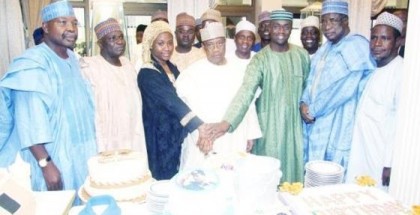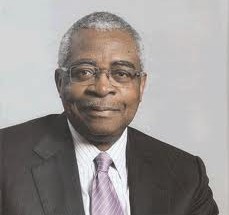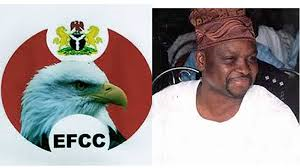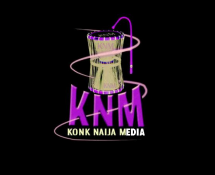Meet Oscar Ekponimo, Young Nigerian Innovator who wowed the World
konknaijaboy | On 08, Jan 2014
Meet Oscar Ekponimo, the young innovator who represented Nigeria at the ITU Telecom World 2013 in Bangkok. His innovation is an application to help humanity check wastage of food.
What area is your innovation?
My innovation is in the area of food waste reduction; using web and mobile platform. There’re six global challenges that the UN under the ITU asked young people who are working in the start-up industry and also who are proficient in technology to innovate unique solutions to solve these global challenges and one of them included food waste. According to the Food and Agricultural Organisation, FAO, a third of the world’s food is wasted in the current method of production and distribution, so how could people help organisations and nations to leverage ICT to reduce this? My solution uses a mobile platform to reduce food waste.
How it works
It’s two sides; we have the retailers and the individuals. At the retail level what this unique mobile solution does is that it allows retail stores track their inventory that is nearing expiration. What we do is that we go around and sign up stores; those stores have this application on their apps and, whenever they have inventory that is almost expiring, an alert is triggered, when it is triggered we receive it on that platform and then we know that we need to come and get some of the food and stop it from being wasted.
For example a store may have a huge stock of cereal and then 10 days to expiry of a particular cereal or product an alert is triggered, we pick it up and we serve it to the needy people. We’ll be partnering with non-profit organisations; when we gather these foods from the retailers, we give it to non-profit organisations and they distribute it to the needy people.
At the individual level; you and I have xcess food in our cupboard that sometimes we don’t need. I’ve been able to relate personally to these experiences. In October, 2013, I travelled a lot and when I came back I realised some Quaker Oats I had left in my cupboard went dead with ants.
If a unique solution like this is available we could easily donate that as individuals. How it works is that you as an individual, if you have that application running in your phone you can trigger a notification that you have excess food you’ll like to donate and then we’ll come pick it up.
There’s also an SMS server implementation for low-end phones; if you don’t have high-end phones, like the smart phones, you can participate using an SMS service. If you’re using a low-end phone, when you send this notification, an auto response is sent back to you and then there’s an information on the closest drop off point for your donations because there’s going to be logistics issue going to individual homes to pick up donations. If you’re in a city like Abuja, we could say drop it at Barnex Plaza for instance.
What prompted the initiative?
I have an end in mind; I have a vision of the kind of things I want to be associated with in 10 years from now, but it’s more of a personal experience, growing up between 1997 and 2004. As I was growing up my dad took ill and stopped working, there was a huge burden on the family at that time financially; a major issue at the time was food. We lived in an average home, my siblings and I but there was just no food at that time.
During that period of 1997-2004 sometimes I went to school without food; I was in secondary school at that time up until 2003. Between that period I was going to school hungry and I couldn’t learn; it affected my academics, so it’s something I could relate with so I always said, sometime in the future I’ll do something to tackle hunger and in 2009 I and a couple of my friends, we had what we called ‘Blue Valentine’. On Valentine Day we went out, taking food to street kids.
Again moving forward, I gained some experience in ICT. After my NYSC I’ve worked with the defence industry, the NIA, as a defence contractor so I built some of these skills and I looked back in retrospect to say since I have these skills I can use it to make things better.
Background
I turned 27 years in April 2013 and graduated at 24 after studying computer science at the University of Calabar.
Your target audience
We can’t solve all the problems but to me there’s an entry point to everything. I thought about it from this angle, there are a lot of organisations solving problems of hunger but then, there’s food still being wasted. So if we can save that food and add it to the entire food chain of people helping hungry people that’s going to be a plus. That’s why I didn’t just stop it at reducing food waste, which is what the initial problem solving paradigm was, I extended it to the entire value chain so that when we get this food that would have been wasted, we give it to the hungry people.
I will be talking to Save the Children, they’re our partner non-profit organisation that will be distributing it to hungry people. And we’re talking to Urban Nigeria, there’re non-profit also, based in Abuja. They deal with Orphans and Vulnerable Children, OVCs. When we get products from some of these stalls we will deliver it to them and they will distribute it. We will also partner telecom operators. The plan is to have it as a home application ; like when you launch your mobile phone for example, you have some applications there. If you can have that as your home screen just as we have Eskimi and MTN online there’ll be more awareness. There’s another aspect which I’ll be approaching them about; it’s a form of CSR and by the grace of God they’ll open their door. We’re planning to build a revenue model around VAS. For example we distribute content for healthy food tips and then if people pay for them we would be able to split the revenue and use it for sustainability, because every business, even non-profit has to be sustainable because you can’t add that value without having money to reach out to these people.
There’s a new paradigm in non-profit called social business. In other words if you’re doing a non-profit, you can do it as a business. So you can actually solve the problem of your immediate community in terms of what you’re doing and also build a business out of it. We have several models like that outside of Nigeria and this will be one of the first social businesses.
Capacity for your application
So far, the early stages have been done; we have a prototype, and then the next phase now is going to be a private bitter testing of this of this application. I and my team will be working on the bitter testing aspect of it. After that will be the full implementation; signing up the stores and creating our user base and then we scale up, and then do sales and marketing. Which of course means that we’ve created awareness for this product. Of course we’ve tested out with our partners and retail stalls. There’re a couple of medium range supermarkets in Abuja where I’m based who have indicated interest to this. Once we have that application up and running we’ll begin testing with them.
Subscription capacity
Like I said, we’ll start beta testing, so there’re no subscriptions yet. We would be implementing cloud based servers, most likely Amazon; to launch it in the cloud and then people can download it. We will put it up on the app store for people to download. But in terms of capacity, I’m a programmer and I also have another programmer and we’ll be adding one more programmer and a software engineer to the team; he will build this out. In terms of capacity still, it’s really good because the resources we need basically is very cheap and doesn’t really take much to do this. It just requires the time, effort, hosting fees and some tools that we need and we’ll be able to roll out.
Will you sell out your application for huge offer?
If you look at the brochure where my profile is, I talked about our vision is to build a technology from Africa to the world. So I will not sell, why? because I believe it’s time for African firms to contribute to the wider innovation and technology circle around the world.
We should be able to walk on the streets of New York and see a high rise tower and be able to say that’s an African company. We should also be able to walk in Bangkok and say that’s a firm owned by an African. That can only happen if we Africans internalise. The way I’ve been able to even build this, previously, I tried to talk to a few people in government on some ideas that I have; the response that I get is rather negative. In fact one professor said to me, ‘hey you want to get rich quick that’s why you’re doing this’. You Know that’s the mentality.
Support from the government
I don’t want to be critical about the government so far, but I believe they can do much more. I didn’t get any support thus far from the government, but hopefully they will. I’ve not met with the minister, I’ve never met her before. I submitted my work directly to the ITU; we had several judges from Red Cross, FOA, and Microsoft judging my specific application and prototype and everything I did. This was for about a month, back and forth with questions on how I was going to get things done and the building of this part of the implementation. Out of 600 entries across the world from 88 countries mine was selected for that category.
Education
We’re all products of Nigerian university, my partner studied computer science also from the University of Port Harcourt, I went to University of Calabar, the young lady who is in charge of sales and marketing studied Theatre Arts in University of Abuja.
Global competitiveness of Nigerian Universities in ICT training
From my background I’ll rather relate it to my experience in computer science at the University of Calabar. Most of what I know were self-thought skills, I wouldn’t say it’s competitive; it’s far from being competitive. The journey here and what I know; the University of Calabar I would say gave me the foundation; a building block to inspire me. But the core relevance in today’s industry I got it outside.
I got the inspiration while in school when I went for my IT after my second year. I went to a small digital photography firm. The owner of the place was a graduate student at Ife, so we told him we wanted to do IT and asked if we could help out with his photography business and be mentored by him. He was really excited and enthusiastic. He gave us e-books and this was far back in 2005. He set up a room for five people with computers, e-books and videos and we just learnt. He told us I can’t baby-sit you if you’re really motivated to do this, just learn. So we did that and on weekends we helped him snap, so this carried on from 2005-2007 and this was my starting point and after that, every other technology I learned I studied by myself.
Source: Nigeria Political Economist
















